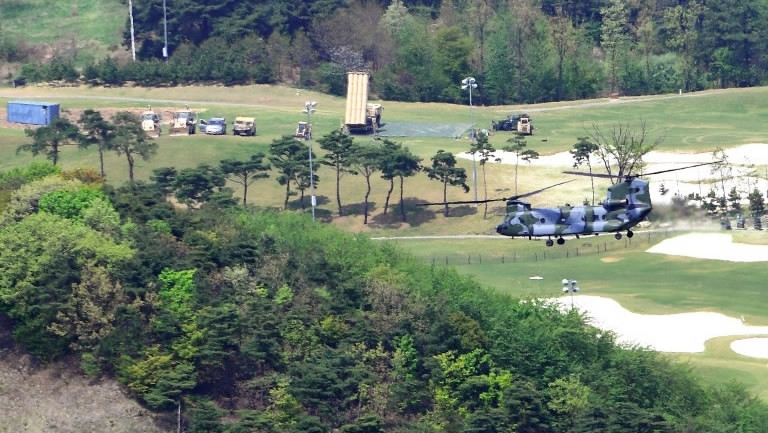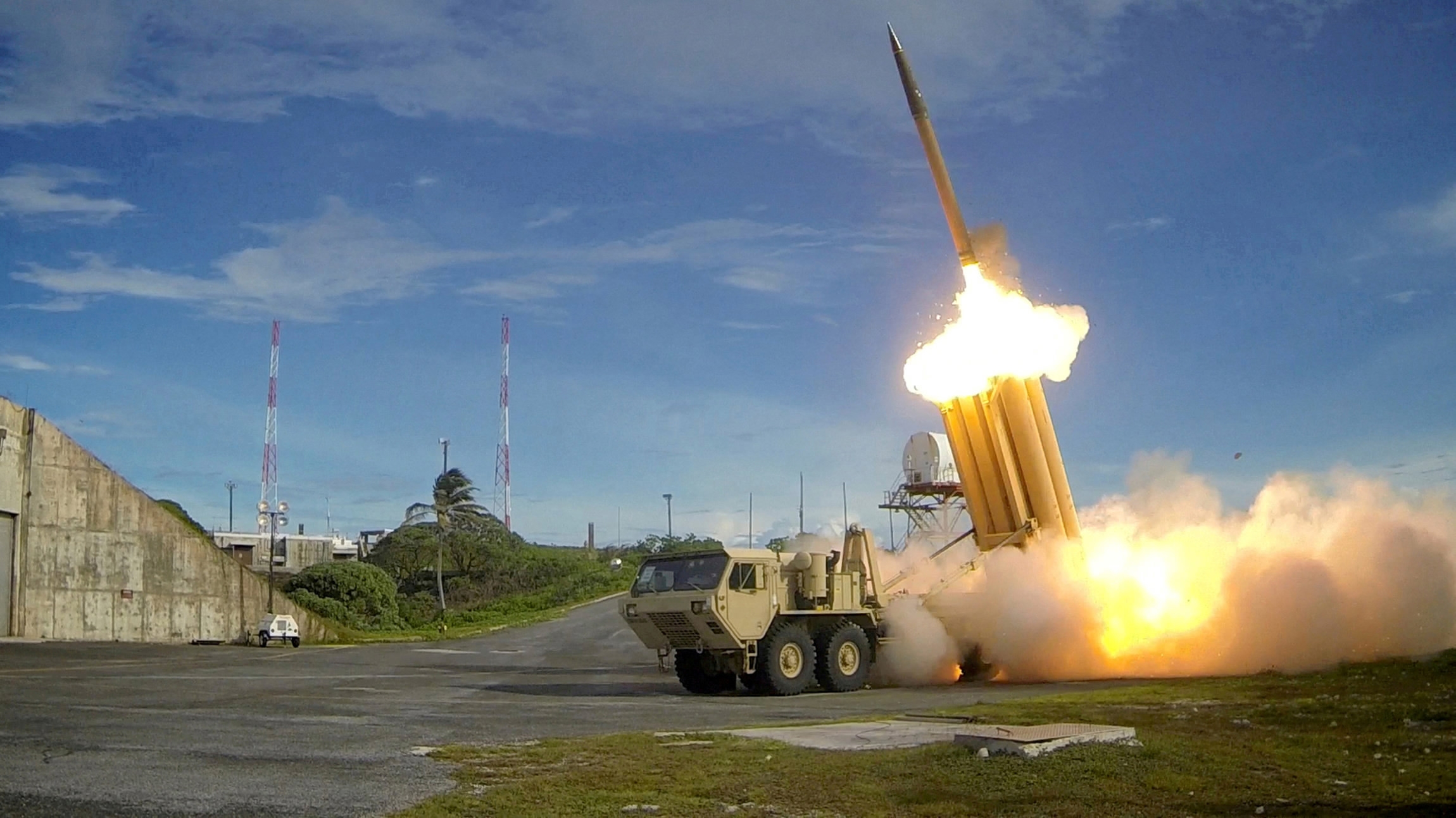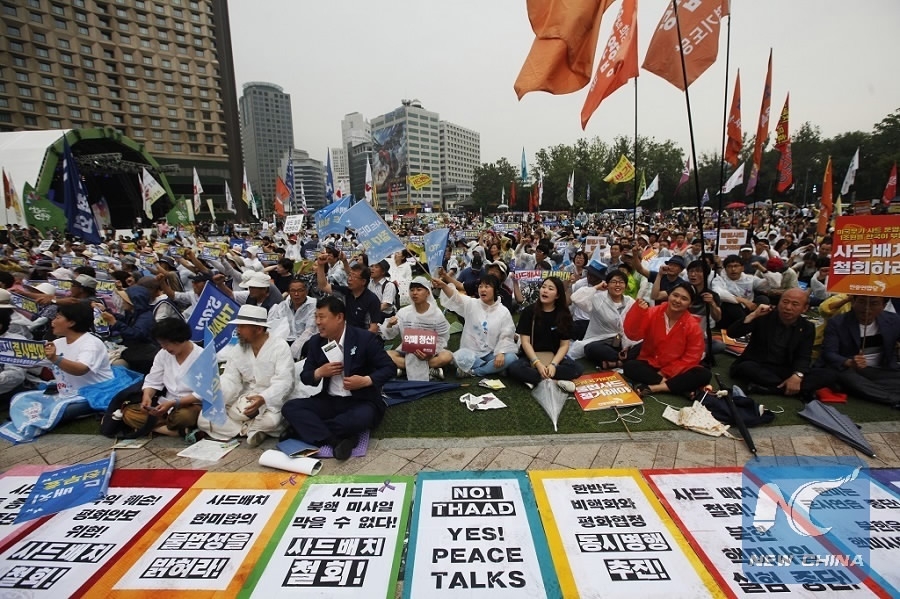
Politics
20:50, 12-Aug-2017
S. Korea: THAAD radar won't cause environmental damage
CGTN

Terminal High Altitude Area Defense (THAAD) missile system, deployed by the US, won't cause any "adverse effects" to the local environment, South Korea's national Yonhap News Agency reported on Saturday citing the conclusions from the country's Ministry of Defense.
"Two rocket launchers and a powerful X-band radar are operational at the new US Forces Korea (USFK) base," the Yonhap News Agency reported after an environmental assessment into the system was jointly conducted by the defense and environment ministries early Saturday in Seongju, some 300 kilometers southeast of Seoul.

The launching of Terminal High Altitude Area Defense (THAAD) interceptor. /Reuters Photo
The launching of Terminal High Altitude Area Defense (THAAD) interceptor. /Reuters Photo
The environmental assessment aimed to survey the electromagnetic radiation and noise from the THAAD system to affect surrounding communities.
According to the defense ministry, all figures from radiation level tests "were far below the regulatory protection standard of 10 W/㎡," while the noise will "have virtually no impact on the community."
On Thursday, the defense ministry postponed the planned environmental measurement of electromagnetic radiation and noise due to bad weather and protests from residents and peace activists, who tried to prevent more THAAD elements from being deployed in their hometown.

South Korean protesters shout slogans during a rally against the deployment of the US Terminal High Altitude Area Defense (THAAD) system near the presidential Blue House in Seoul on July 31, 2017. /Xinhua Photo
South Korean protesters shout slogans during a rally against the deployment of the US Terminal High Altitude Area Defense (THAAD) system near the presidential Blue House in Seoul on July 31, 2017. /Xinhua Photo
A THAAD battery is composed of six mobile launchers, 48 interceptors, AN/TPY-2 radar and the fire and control unit.
So far, two out of six mobile launchers and other THAAD elements were installed in the US Forces Korea (USFK) base in Seongju.
In June, the presidential office ordered the defense ministry to conduct a full environmental impact assessment, a process that could take up to several months, before the other four launchers could be installed.

SITEMAP
Copyright © 2018 CGTN. Beijing ICP prepared NO.16065310-3
Copyright © 2018 CGTN. Beijing ICP prepared NO.16065310-3